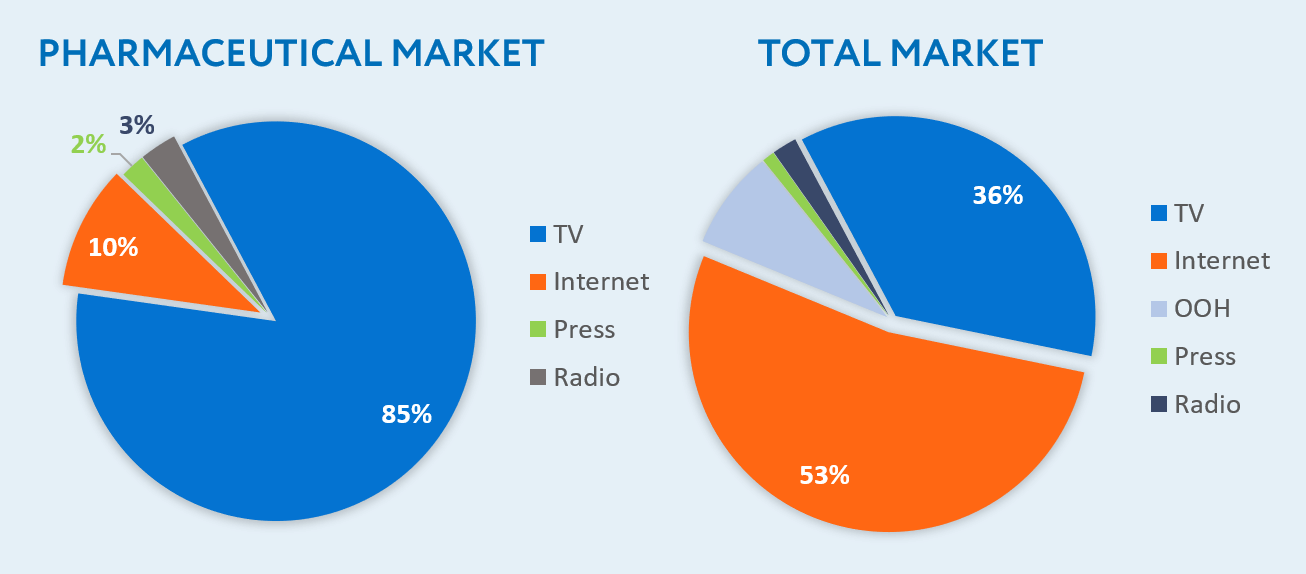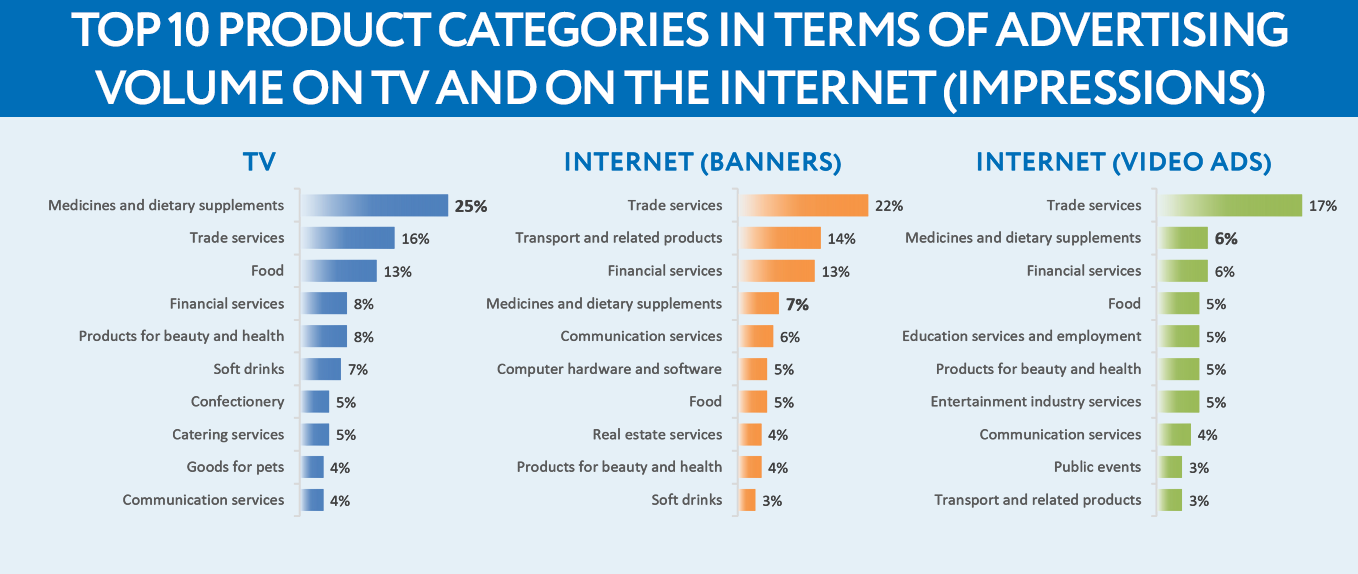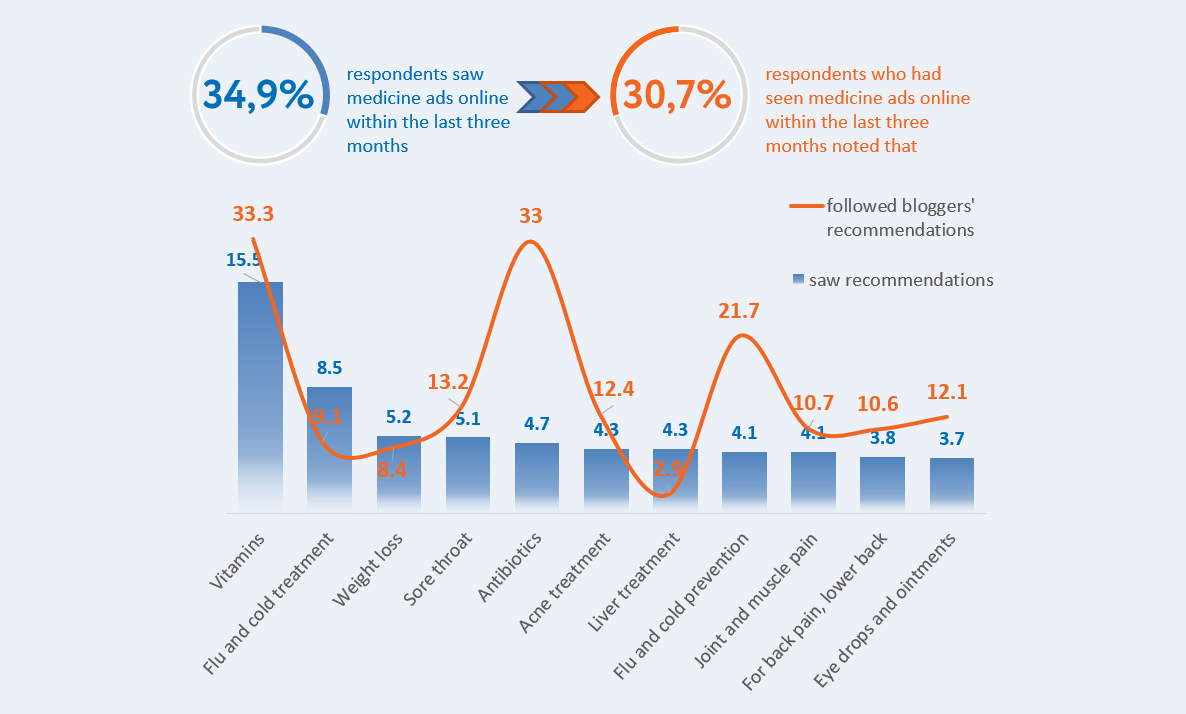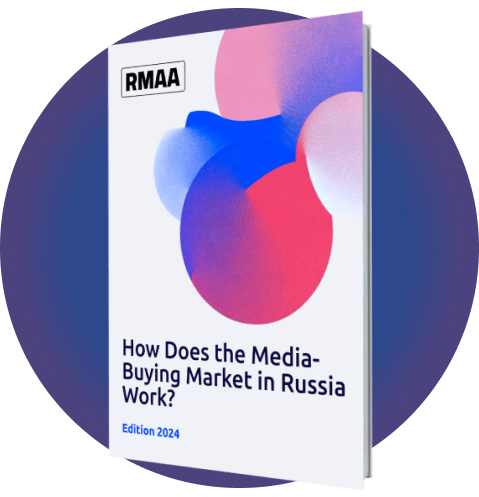Blog about successful marketing strategies in russia
Peculiarities of Medicine Promotion in the Russian Market


MEDIA BUYING
Share this Post
In every country, medicine advertising is regulated with great care and severity. Russia is not an exception. Advertising of any medicines in offline and online channels is strictly governed by the Federal Law on Advertising.
Russian Legal Requirements for Medicine Advertising
Generally speaking, within the limits of the law, medicine advertising shall contain complete and only reliable information that contributes to the rational application of the goods advertised.
According to the Law on Advertising, medicine advertising shall contain one of the types of warning:
- of the existence of counter-indications for the application and use thereof,
- of the need for familiarization with application instructions,
- of the need for seeking advice from specialists.
At that, the advertisement shall contain no comparisons with any other medicines. The duration of such a warning shall be at least three seconds in an advertisement distributed in radio programs, at least five seconds in an advertisement distributed in television programs, and when cinema and video services are provided, with at least seven percent of the area of the frame being occupied by the warning, and at least five percent of advertising area (advertising space) in an advertisement distributed by other means.
The requirements of the Law on Advertising also cover the promotion of medicines online and on social media.
The authority dealing with detection of advertising violations in Russia is the Federal Antimonopoly Service of Russia (FAS).
Please note that restrictions mentioned above cover OTC medicines only. An advertisement of medicines dispensed on prescriptions is prohibited in Russia. The exception is advertisements in the places where medical or pharmaceutical exhibitions, seminars, conferences, and other similar events take place, and also in specialized printed publications indented for medical and pharmaceutical personnel.
TV as Major Medicine Promotion Channel
The pharma industry keeps investing most actively in TV ads. In 2020, the TV share was 85% of all advertising expenses. This is explained by the fact that large advertisers, which include pharma, typically prioritize reach capabilities of TV ads. Besides, one of the key segments consuming medicines is still the elderly.

Source: Deloitte, Advertising and Promotion of Medicines and Medical Products
According to Mediascope, medicine ads lead the pack of advertising categories on Russian TV, taking one-quarter of the entire TV advertising volume. On the radio, ads of medicines and dietary supplements take 2nd place with a 17% share; in the press, the 4th place with a 10% share of the total volume of ads placed.

Source: Mediascope, Advertisers, and Categories: 2020 Results
In 2020, there was a marked increase in the online promotion of medicines. 7% of banner ads and 6% of video ads online are placed by pharmaceutical manufacturers.
Online sales of medicines came up, too. The online pharmacy traffic has increased by more than 50% in the last year. An absolute traffic leader is Apteka.ru, and its traffic volume surpasses competitors by far. The most active months in terms of traffic were March-April and November-December 2020, which is most likely related to the coronavirus outbreak and seasonal flu and viral respiratory infection outbreaks.

Source: Mediascope
Medicine Advertising by Bloggers Becomes more Apparent
According to the data from the HealthIndex study 'Opinion of Ultimate Customers' for the fourth quarter of 2020 done by Ipsos, 35% of users faced medicine ads online, with 31% out of them having noted that they saw posts, videos, and other materials made by bloggers where they gave recommendations on medicine categories. This is much more than in 2019 when 25% of respondents saw medicine ads online.
The first place in medicine categories among bloggers' recommendations is taken by vitamins. 15.5 respondents noted that they had seen information about drugs presented in blogs, and that was much more than other medicine categories. A substantial share (33.3%) of consumers who received the recommendations followed the advice taken. The second most mentioned category is anti-flu and -cold drugs (8.5%), and the third place is taken by weight loss drugs (5.2%).
A relatively small share of consumers noted bloggers' promotion of antibiotics (4.7%); however, 33% of them followed their recommendations. A similar situation is manifested in the promotion of flu and cold prevention drugs: recommendations were seen by 4.1% of respondents and followed by 21.7% out of them. As for other groups, trust indicators are much lower.
Bloggers' recommendations on medicine categories

Source: Pharmvestnik, April 2021
Medicine promotion via bloggers is getting more and more popular. In this regard, it is worth remembering that medicine ads by bloggers shall conform to the laws of the Russian Federation!
When writing any texts and scripts for advertising posts and videos, including via bloggers, there is a number of rules prescribed in the Federal Law on Advertising that should be kept in mind.
It is prohibited to:
- show an immediate effect;
- use images of doctors;
- tell about health improvement or recovery from a disease of a specific person;
- tell about properties and characteristics of a drug not contained in the instruction;
- create the idea that the drug has advantages by making reference to research, which is compulsory for the state registration of the drug;
- assert or assume that the consumers have certain diseases;
- create the impression that there is no need to visit a medical doctor;
- guarantee a positive effect of the object of advertising, its safety, efficiency, and lack of by-effects.
|
It is not allowed to |
It is allowed to |
|
highlight the ultimate result of the drug effect (will cure, will put out); |
point at the process (helps reduce, relieves, protects); |
|
use adverbs showing the ultimate results (forever, for sure, never); |
use adverbs characterizing the effect (delicately, softly, comfortably); |
|
point at the time of effect with regard to medical properties (forever, for sure, never); |
point at the time by the number of drug properties in minutes or hours only if it corresponds to the instruction for its use and does not go beyond (begins absorbing in 15 minutes); |
|
declare superiority of the product over competitors. |
prove information about the product's advantages with references to the source (research, ranking). |
Source: Federal Law No. 38-FZ on Advertising dd. March 13, 2006
Besides, ads, including ones by bloggers, shall contain a disclaimer—this is a waiver of liability for possible consequences or a notice of liability limitation. In advertising, these are short warnings that point at the specificity of a product or service, for example, 'contraindicated in certain cases, please seek for medical advice before use'.
What must TT include?
- rules and course of administration of the product, specifics of use on camera;
- product effect, according to the instruction. Properties not stated in the instruction must not be mentioned in the ad;
- taboos, unauthorized phrases, and actions—positive image is very important for drug manufacturers as this refers to health;
- phrases and actions that will be contrary to law, for example, demonstration of an immediate effect.
More Attention to Online Tools
The adoption of the law on distance selling of drugs became a key driver for online sales of OTC medicines. However, now consumers mostly look for medicine pricing online with a further offline purchase, as well as prefer getting online orders in traditional drugstores and pickup points in person.
Anyway, today medicine manufacturers should also adapt to the developing online sales market.
As for distribution and marketing, three more key channels can be added to the habitual collaboration with pharmacy chains:
1. An own branded online shop of a manufacturer or separate websites for the promotion of certain drugs;
2. Online pharmacies;
3. Marketplaces.
Each of them has its own specifics of goods promotion. RMAA Group experts are ready to undertake all issues related to elaboration and implementation of a marketing strategy to promote pharma brands and medical trademarks in the Russian market, which will adhere to all statutory regulations of the Russian Federation.
Join 2,000+
of your Peers!
You will be the first to know about Russian marketing insights, news and updates from our agency. Stay tuned!
Get our latest articles delivered to your email inbox and get our exclusive White Paper
"A media buyer's quick guide for effective work in Russia"
for FREE!
How does the Media Buying Market in Russia Work?
Navigating the Media Buying System in Russia

Ready to partner with the specialists in Russian marketing and advertising?
About the Author
Head of Digital, editor-in-chief of the RMAA Agency Blog
Join 2,000+ of your Peers!
Get our latest articles delivered to your email inbox and get our exclusive White Paper "A media buyer's quick guide for effective work in Russia?" for FREE!
You will be the first to know about Russian marketing insights,
news and updates from our agency.
Stay tuned!
We're updating our website's design step by step, so some pages may look different. Thank you for your understanding.
Got it














